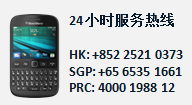United Kingdom

Implications of Cargo Residues as Garbage
The amendments to the Appendix to Annex V of Marpol as approved at MEPC49 (14 to 18 July 2003) and adopted at MEPC51 (29 March to 2 April 2004) came into force on 1 August 2005 and includes the addition of cargo residues as garbage.
Thus cargo residues that remain after discharge fall under the definition of garbage as operational waste requiring it to be disposed of outside Special Areas and then, as far away from the "nearest land" in accordance with Reg. 3 (essentially the criteria being whether the garbage floats minimum 25 miles and if it sinks minimum 12 miles). Disposal of garbage is prohibited within Special Areas as per Reg.5, other than food waste when a minimum of 12 miles from the "nearest land". Previously the International Chamber of Shipping (ICS) did not hold the view that Annex V covers cargo residues but that such residues should not be discharged without due consideration of their effect on the marine environment. Clarification appears to have been made by the International Maritime Organization (IMO) in that the Garbage Record Book is to include entries for disposal of cargo residues. With this clarification it would appear that cargo residues can only be disposed of and/or discharged overboard when the vessel is at the aforementioned distances from the nearest land and then only outside of a Special Area.
If the cargo is toxic to the marine environment and its watercourses and/or considered as noxious then the UK has additional strict pollution regulations pertaining to the disposal of and/or discharge of cargo residues in its national waters and by vessels flying its flag. Individual Flag and Coastal States may have their own requirements that may incorporate such instruments as MARPOL 73/78 and/or the London Dumping Convention 1972.
MARPOL ANNEX I - Regulations for the Prevention of Pollution by Oil
Annex V Reg. 1(1) of the Marpol Convention outlines if the substance is defined or listed in other Annexes then Annex V does not apply, the other particular Annex applies. In the case of a cargo that has a hydrocarbon (petroleum) oil content such as a Petroleum Coke, where the effluent that is generated contains "oil" then it would appear such product and any effluent derived from a hold cleaning process can only be discharged overboard in compliance with Annex I.
Annex I Reg. 1(1) defines Oil "petroleum in any form including crude oil, fuel oil, sludge, oil refuse and refined products..." Annex I Reg. 1(2) defines Oily Mixture "a mixture with any oil content". Annex I Reg. 2(1) provides "Unless expressly provided otherwise, the provisions of this annex shall apply to all ships".





